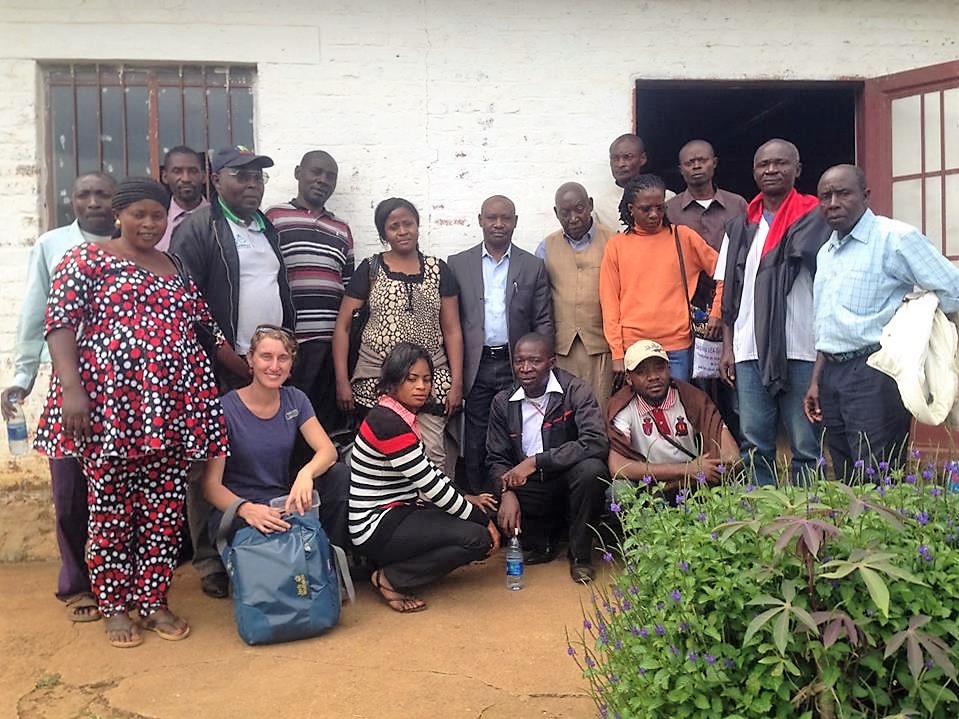Meet the Conservationist: Katrin Puetz
There are many corporations, bureaucracies and NGOs to clamor for funds for solving Africa’s energy problems. It takes gumption and determination in equal measure to try bucking the trend.
Katrin Puetz founded (B) energy in 2013, a do-it-yourself biogas business, based in Germany with the first franchise partners in Ethiopia. She trained as a cabinet-maker in Germany for three years after school and then worked in Australia for two years. Katrin changed her mind from woodwork and went back to school to complete a BSc in Environmental Studies.
“I was appalled with the attitude of big organizations forcing unwieldy projects down the throats of third-world countries with scant regard for their real needs,” she says and decided to channelize her energies towards sustainable clean energy solutions. Her MSc thesis titled, ‘Biogas Transport and Logistics to Commercialize Biogas in Developing Countries’ launched her career path. Katrin was granted two patents in Germany for her inventions at the University of Hohenheim – a polyester material that functions as a semi-permeable membrane to dissipate carbon dioxide and retain methane from bio-waste and an environment-friendly backpack to transport biogas to end users.
The innovator is clear that renewable energy in general and biogas in particular has to be paid for like electricity, LPG and CNG, where the producers earn a fair price for their products. (B)energy works with a clientele who purchase custom-made biogas units comprising of a digester bag, piping, storage bag, transport backpacks and stoves as per their needs and substrate availability. For her dedication to the cause of renewable energy, ACT is proud to name Katrin Puetz as conservationist of the month – Ed. Pai.
 |
|
Katrin (First Left, Kneeling) with trainees at Bukavu, DRC. Photo credit: Katrin Puetz. |
Pai: How can small ideas for renewable energy make big impact on the lives of people earning $2 per day? Can they turn a profit with small business?
Katrin: The secret is to find mechanisms that allow customers to access the technology with a down payment. Ideally, this loan could be provided by the company itself without involving microfinance institutions. So, customers can make money selling biogas and pay off their virtual loans.
Pai: At a time when Germany is weaning away its power grids from nuclear energy, would you say (B)energy would find a better market there instead of Ethiopia?
Katrin: In Germany, there is no real need for small scale biogas and this technology is appropriate for countries lacking national energy grids.
Pai: Considering any individual with principles faces an uphill task, how prepared are you for the long slog ahead?
Katrin: I have a vision which is preparation in itself.
Pai: Why do you resist opportunities to convert your company into a corporation? Don’t you think you can reach out and service a wider client base that way?
Katrin: I want it to be a social business established independent of any kind of free money. If I can’t assist local entrepreneurs to run the business on their own steam, it is not worth doing it. It is a matter of locals taking responsibility for solving local problems.
Pai: What is your typical work day like?
Katrin: Basically, I do all that needs to be done in the company. Eventually, I will have the social franchise system in place and then on work in the field will be spread across the franchisees.
Pai: What are the challenges of working in the biogas sector in Ethiopia?
Katrin: There is no private biogas sector in Ethiopia. Therefore, registering a biogas business in Ethiopia was a big challenge. Now we are ready, we manufacture all technical components in Addis and are looking for more agents who want to sell our technology to reach out to the remote places.
Pai: How have things moved on after your teething problems?
Katrin: Apart from producing the biogas locally, we are also marketing and installing the Units. This is (B)energy Ethiopia, which is run by Wubshet Yilak, my new and energetic partner. For (B)energy Germany, my company, things are moving just as well – we have many requests from all over the world and initiated the first trainings for future franchisees in Rwanda, DRC, Germany and India.
Pai: How come you have extended your work beyond Ethiopia?
Katrin: (B)energy is the German franchisor. I can only reach local markets in the target countries through local business partners who become my franchisees. The Ethiopia case was meant to be the pilot franchise, but international interest is too big to refuse others to start parallel in their countries – we learn together as we go.
Pai: How do you raise funds to train African entrepreneurs in Germany for biogas technology?
Katrin: People who want to become a business partner, e.g. a franchisee and representative of (B)energy in their country, have to invest into training and material. This is fair and starting a business always requires an investment. Using aid money is not allowed!
Pai: What are the benefits of talking to school kids in Addis about renewable energy?
Katrin: Kids are the future and open to new ideas. Teaching children at school about biogas as a healthy, affordable and even profitable source of energy does not only educate them, but hopefully give them the power to convince their parents and the opportunity to design a better future.
Katrin Puetz – Founder (B)energy, Ethiopia.